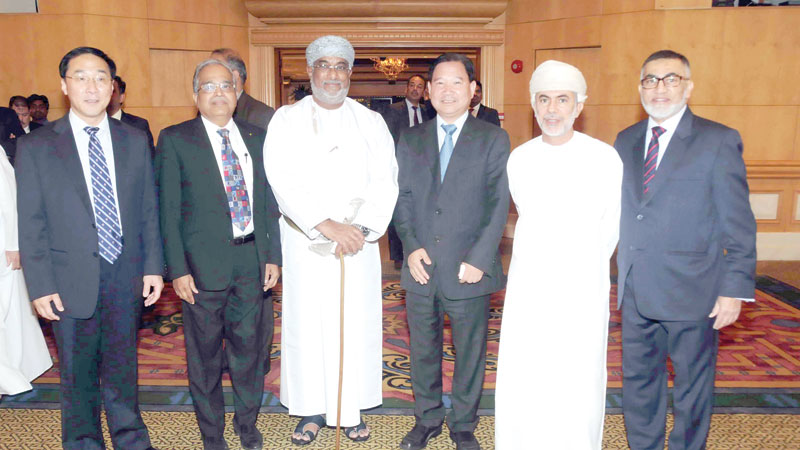

Business Reporter -
MUSCAT, MARCH 3 -
Regulatory compliance in the Sultanate is at par with trends in some of the world’s leading economies, according to Yang Jiantao, Co Chairman of Crowe Horwath, the top ten accounting network.
Addressing a seminar on the theme, ‘Complexities of Family Owned Businesses’, Jiantao hailed Oman’s framework of laws and regulations, which he described as robust and sound.
The event was organised by Horwath Mak Ghazali, the member firm of the global professional services institution in the Sultanate. It was held under the auspices of Yahya bin Said al Jabri, Chairman of the Special Economic Zone Authority, Duqm (SEZAD) and was also attended by Abdullah al Salmi, Executive President of the Capital Market Authority (CMA) and Yu Fulong, the Ambassador of China to the Sultanate.
In welcome remarks, Davis Kallukaran, Managing Partner —Crowe Horwath Oman, noted that Yang Jiantao, who is visiting the Oman office for the first time, was impressed with the natural beauty of the Sultanate. Yang’s maiden visit was likely to unleash new inflows of investment from China into Oman, he added.
Yang Jiantao is also Chairman of Ruihua Group and the Party Committee Secretary of Ruihua Certified Public Accountants, the largest local accountancy firm in China. Ruihua has been ranked No 1 among China’s local accountancy firms for four consecutive years, according to the “Top 100 Public Accountancy Firms in China” published by the Chinese Institute of Certified Public Accountants (CICPA).
Ruihua’s total revenue has exceeded those of three of the Big 4 international firms in China. They have more than 10,000 members of staff, and 366 Partners.
According to Asin Nurani, an expert on family businesses, global statistics show that survival rates of family businesses from 1st generation to 2nd generation are around 30 per cent, declining to 15 per cent from 2nd generation to 3rd generation, and slumping to 3 per cent from 3rd generation to 4th generation. Family legacies are often fraught with a lack of alignment or clarity on several fronts, he pointed out.
Some of the challenges facing family businesses, according to the expert, are:
n Lack of a unified and coherent family vision both at the family and business level.
n Change in values from succeeding generations. As new generations come into the fold, their values often differ from those who founded the business.
n Lack of policies: there is no clarity on which, family members can join the business and within which conditions.
n Lack of options for the next generation where they do not see opportunities for their personal passions to blossom within the historic business set-up.
n Lack of talent where the founder members do not recognise next-gen talent or the next-gen members genuinely lack the talent to manage the business into the future.
n Emotional blockages where there is blame, jealousy, confusion, doubt, ego etc.
n Lack of professional approach to conducting business — they do not hold structured and regular board meetings,
n Difficulty in holding family members accountable
n Communication is often weak.
“Family businesses are also often trapped in a legacy business that has a weak future, but because of sentiment, they cannot let-go of the legacy business and embrace or adapt to new business opportunities. They can often hang-on to a business, in spite of it losing money, purely for sentimental reasons,” said Asin.
Oman Observer is now on the WhatsApp channel. Click here



